Performance Metrics of FTP Transfer Monitor
Interpret FTP Transfer Monitor Results
Site24x7's Web dashboard has a custom status banner, which identifies the various configured monitors by segregating them based on their operational status and state. You can also view the number of operational monitors and alert credits remaining in your account. By clicking the "+ Buy More" button, you can purchase additional monitors and alert credits. Click the configured FTP Transfer Monitor to view the corresponding monitoring results. You can share the monitor details via an email. Email can be sent to only those verified users who have agreed to receive emails from Site24x7.
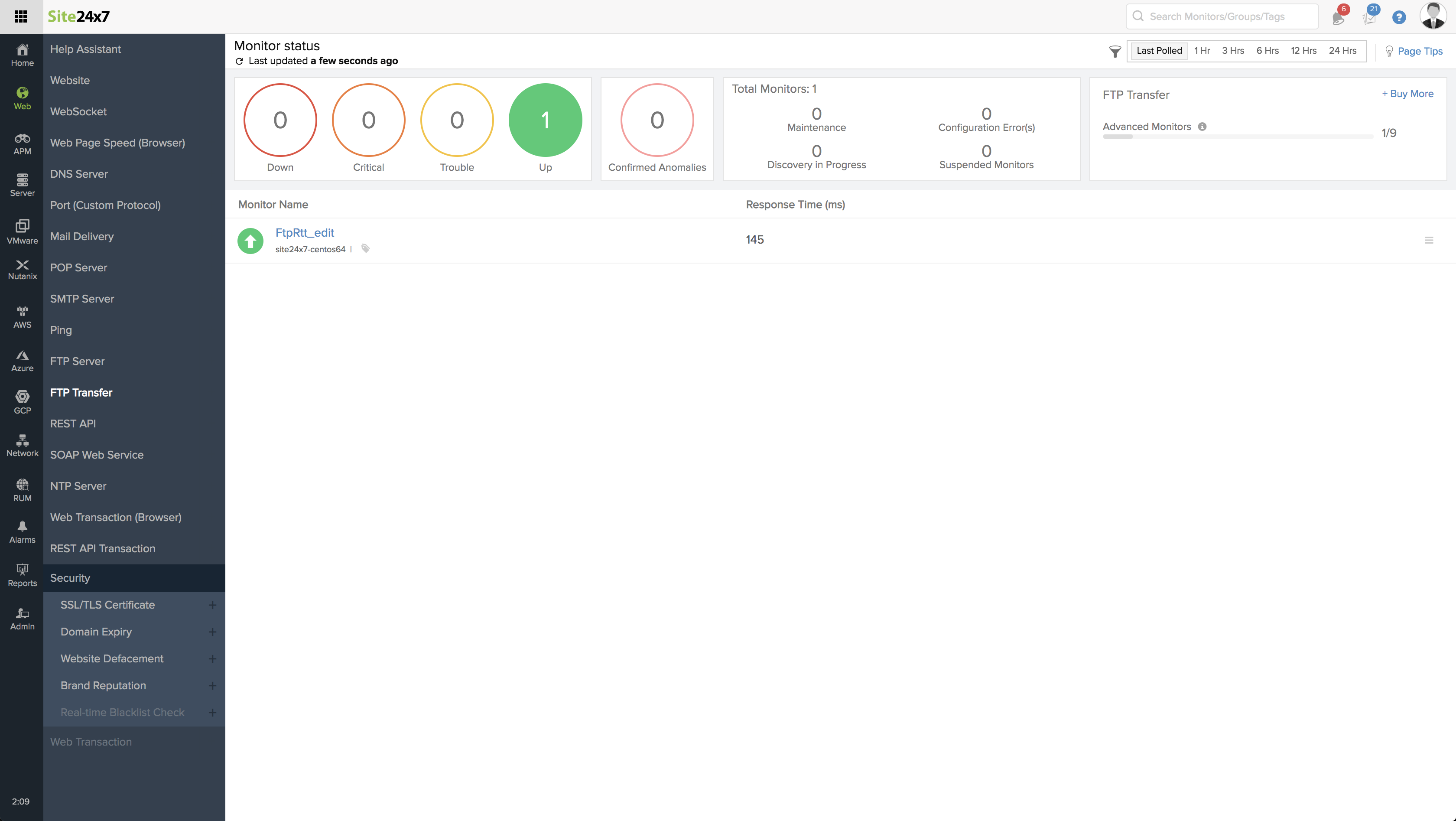
The status banner gives you instant insight into various critical parameters including Availability, Roun Trip Time, number of downtimes and its total duration, and SLA status. You can also use the custom time picker to choose the relevent time band.
Events timeline widget records all the past events of your selected monitor for a selected time range. You can identify/decode various events from the past, which includes Down, Critical, Trouble, Maintenance, Suspended, or Anomalies. Each event are color coded for easy identification. Events can be drilled down to extract maximum data and facilitate easy troubleshooting. You can also track the actual outage period and the total outage duration during a specific block of time.
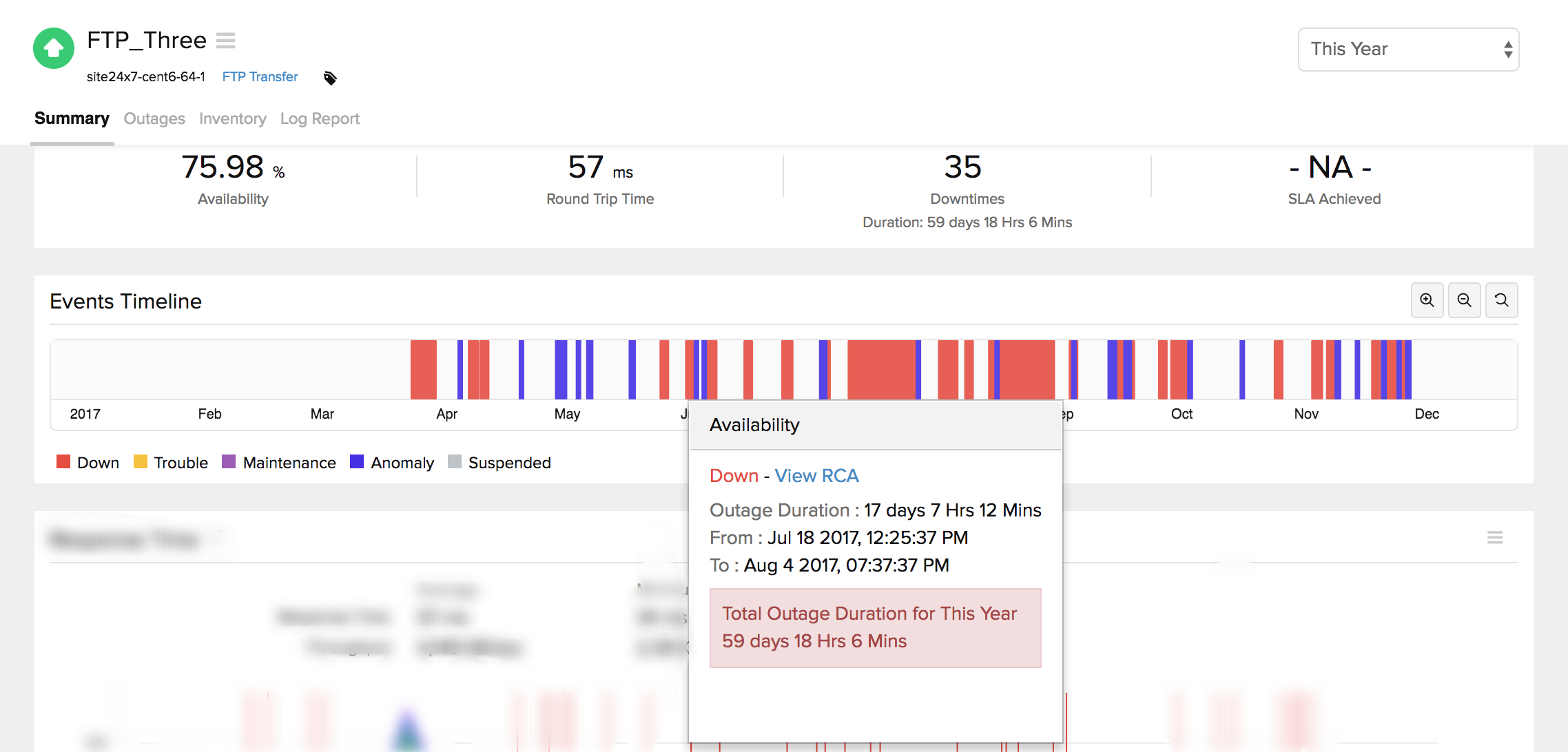
The metrics page is divided into two sections:
- Response Time which shows response time metrics of your FTP server in a graphical format.
- Availability & Response Time by Location, which gives a tabular view of location wise availability and other related metrics.
Response Time: Response Time for FTP Transfer monitor is calculated as the total of connection time, the login time and the actual time for the configured process (upload or download). Hence the resultant Response Time graph supports split up for connection time, login time and the average/95th percentile value for the total process. Response time across all locations is taken into account while computing the Response Time graph.
Connection Time: Connection Time is taken as the time taken by Site24x7 servers to establish a TCP/IP connection to the target host, that is your FTP server.
Login Time: Login Time is calculated as the time taken by the Site24x7 servers to gain access to your FTP server, using the login credentials specified by you at the time of configuring.
You can further filter out the three point, five point moving averages and also the 95 percentile by selecting the appropriate legends. The graph also lets you zoom in and isolate the exact data from the graphical spikes. You can also add specific notes to inform users about the various outages and maintenance activities.
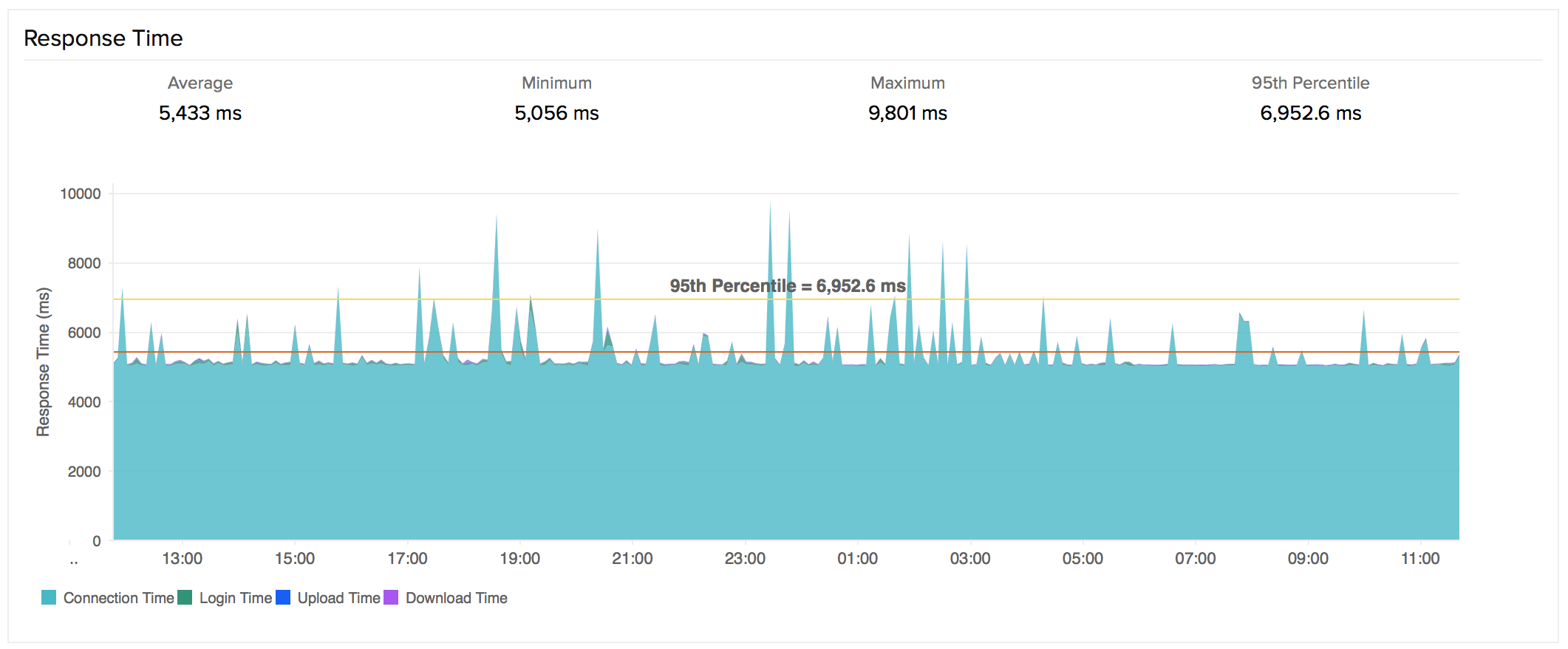
Throughput Graph
Throughput is calculated by dividing the total content length (in KB) by response time (in sec). This data is useful to analyze your connection speed as well as the bandwidth usage of the server.
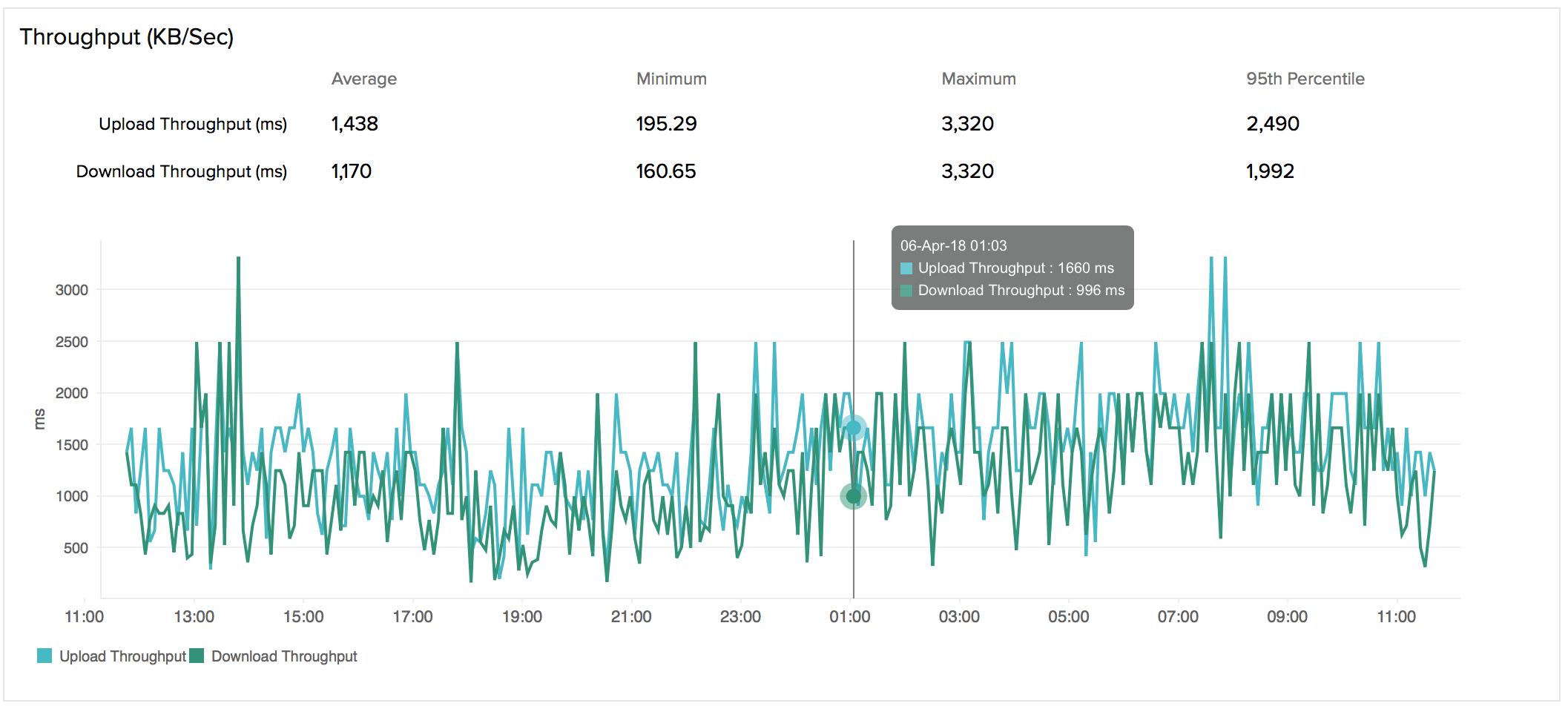
Response Time by Location
The availability and response time for your configured FTP server for each monitoring location is shown in a graphical and table format. The total availability percentage and response time and down duration from each monitoring location can be viewed from this. The availability and response time for your configured FTP server for each monitoring location is shown in a table format. The total availability percentage and response time and down duration from each monitoring location can be viewed from this.
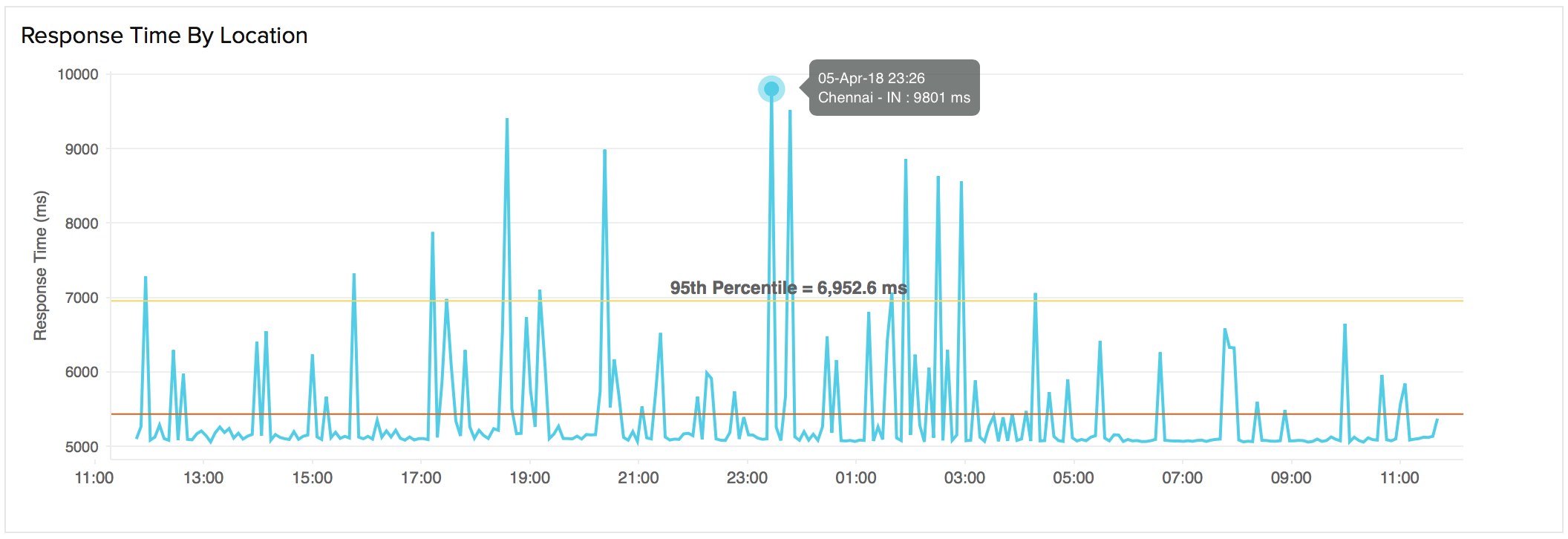

Global Status and Updates
Get an instant peek into the actual real-time status of your monitor from the configured geographical locations. Additionally, you can also view the real-time data from the various poll cycles and it includes the outages and trouble alerts data.

Outages
You can access the Outages tab in your monitor's details page to gather detailed insights on the various outage and maintenance downtimes. It provides you with sufficient information to troubleshoot issues. You'll also be able to access the root cause analysis reports for your various outages. On accessing the ![]() icon of a listed monitor outage or maintenance, you'll be shown the options to:
icon of a listed monitor outage or maintenance, you'll be shown the options to:
- Mark as Maintenance: Mark an outage as Maintenance
- Mark as Downtime: Mark a Maintenance as Downtime
- Edit Comments: Add/Edit Comments
- Delete: Delete an Outage/Maintenance permanently
Root Cause Analysis (RCA) Report
You can retrieve indepth root cause analysis report for your DOWN monitors after 150 seconds of the monitor reporting the outage. RCA Report gives basic details about your monitor, outage details, recheck details and reasons for the outage. Root Cause Analysis automatically generates a plethora of information to arrive at a definite conclusion as to what triggered a downtime. RCA intends to determine the root cause of specific downtime or performance issue. A normal RCA report will comprise of the following details:
- Checks from Primary location and re-checks from Secondary location.
- Ping Analysis
- DNS Analysis
- TCP Traceroute
- MTR Report
- MTR based Network Route
- Conclusion
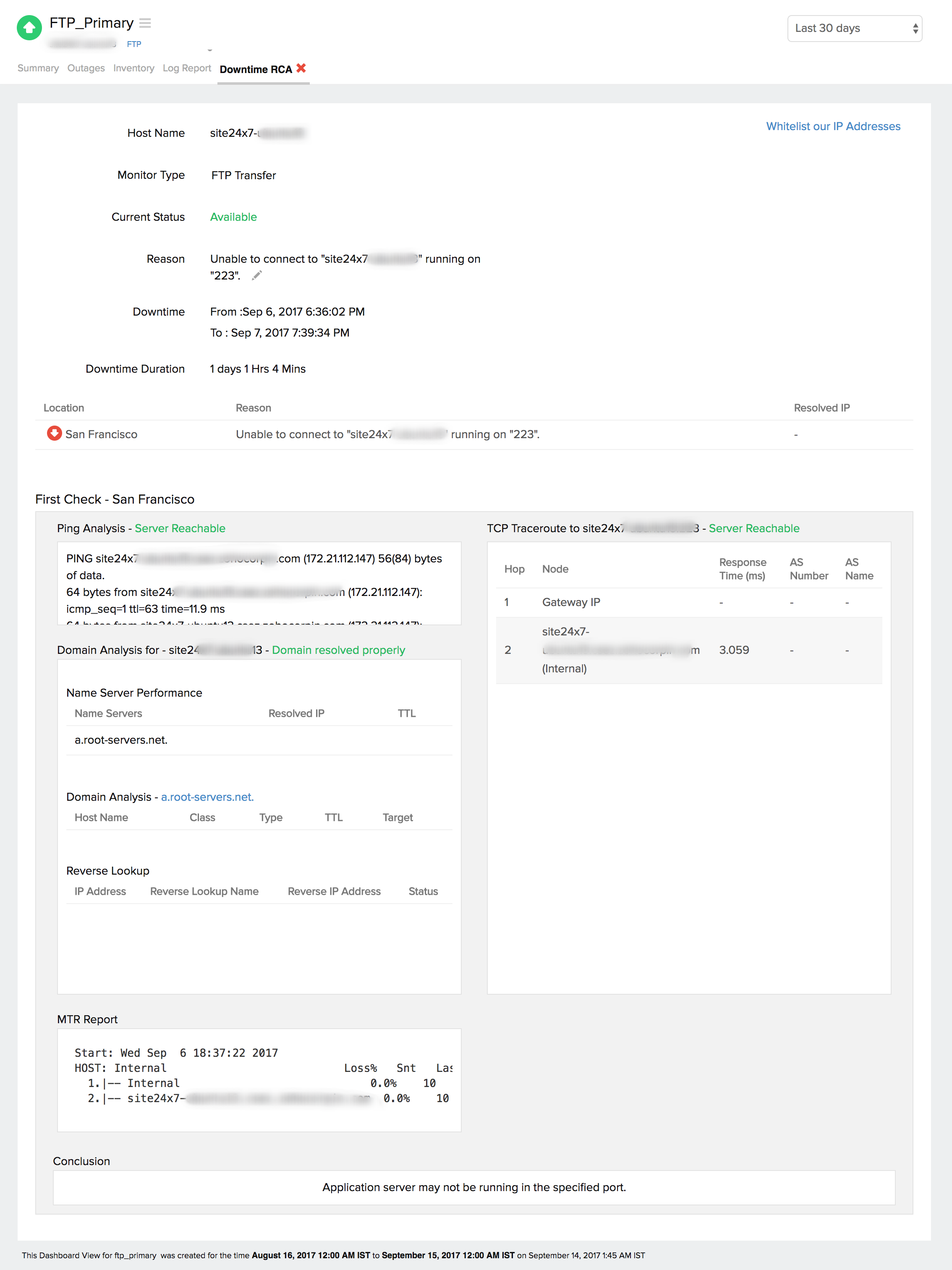
Down/Trouble History
It offers detailed insight into the trouble history of your monitor. You can view the status, the exact downtime, duration, and specific reason for the down status.
Availability & Response Time by Location
Attributes like Availability and Response Time of the FTP server from each monitoring location is shown in a tabular format. The total availability percentage, Response Time (ms) and down duration from each monitoring location can be inferred from this report.

Inventory and Notes
This section captures the basic monitor information and also its various configuration settings including polling locations, poll interval, licensing type, and more.
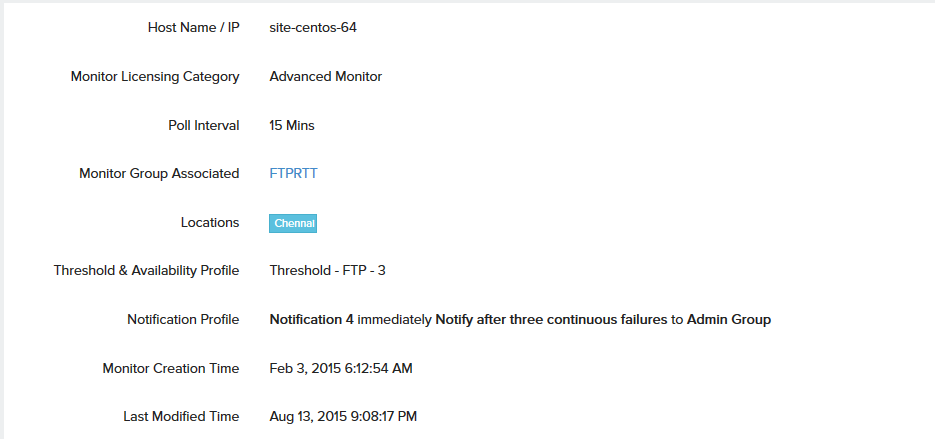
Log Report
With our integrated log records for individual monitors, you can get an indepth knowledge about the various log details for the configured monitor, over a custom time period. You can also filter the log based on location and availability. You have an option to download the log report in CSV format.
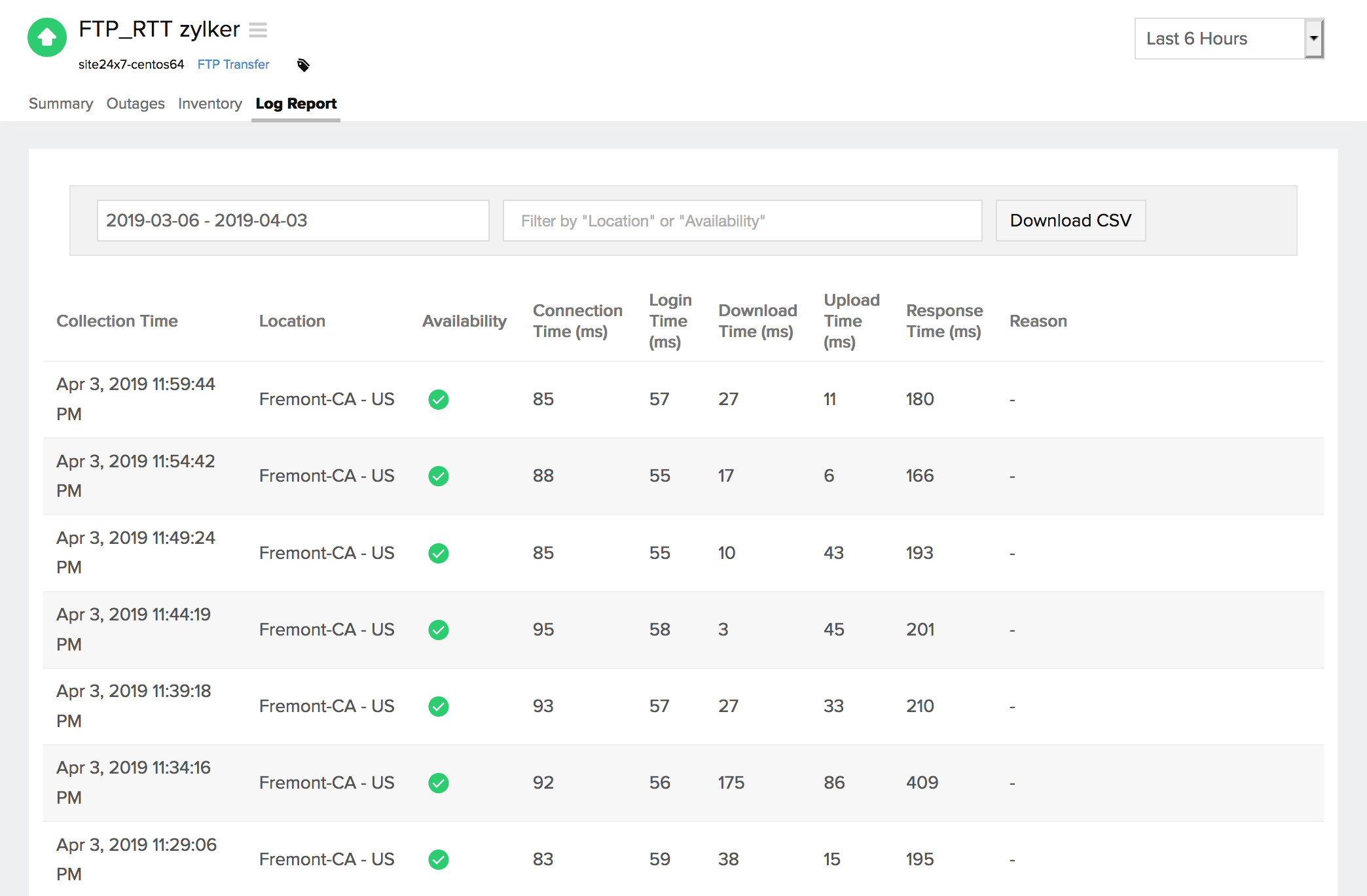
Learn more: How to set up an FTP Transfer Monitor?
